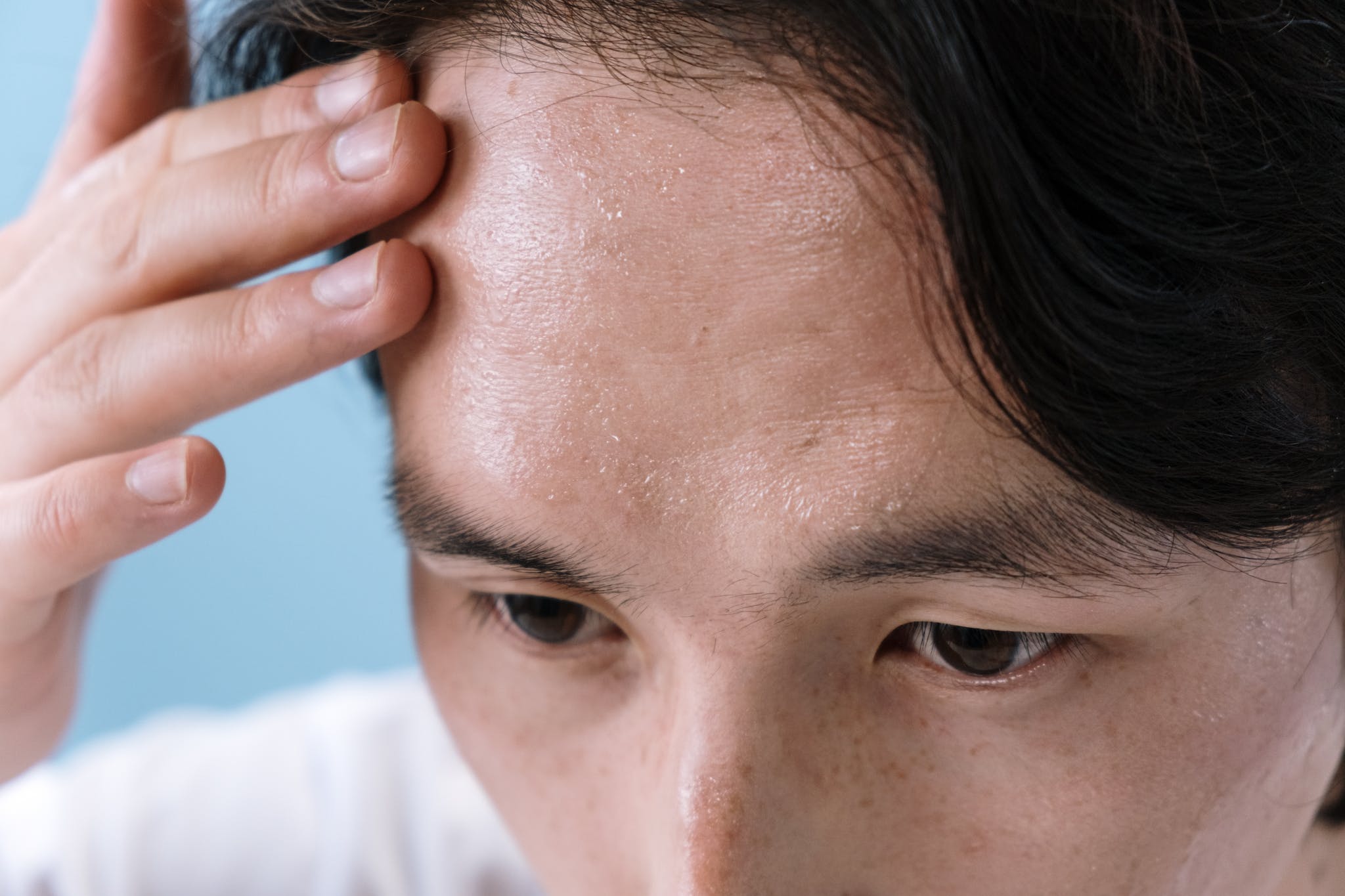How to Solve Your Nightfall Problem and Sleep Better


Table of Contents
Understanding the Causes of Nightfall
The occurrence of nightfall, also known as nocturnal emission or wet dreams, is a natural physiological process that commonly affects males during adolescence and early adulthood. In essence, it refers to the involuntary ejaculation of semen during sleep. While it is a normal part of sexual development and maturation, the specific causes of nightfall can vary.

One common cause of nightfall is hormonal fluctuations. During puberty, the body undergoes significant changes, resulting in an increase in the production of sexual hormones such as testosterone. This surge in hormones can lead to heightened sexual arousal and, consequently, nocturnal emissions. Additionally, certain medical conditions or medications that affect hormone levels, such as thyroid disorders or antidepressants, can also contribute to the occurrence of nightfall. However, it is important to note that the occasional release of semen during sleep is generally not a cause for concern and does not typically require medical intervention.
Recognizing the Symptoms of Nightfall

Nightfall, also known as nocturnal emission or wet dream, is a natural and involuntary release of semen during sleep. It is a normal physiological process that occurs in males, especially during adolescence and young adulthood. While occasional nightfall is considered normal and nothing to be concerned about, experiencing it frequently or excessively may indicate an underlying issue that requires attention.
Recognizing the symptoms of nightfall involves being aware of the physical signs and changes that occur during and after the experience. Typically, a wet dream is characterized by the release of semen, which may be accompanied by sexual arousal and accompanied by erotic dreams. Some individuals may wake up during or immediately after the occurrence, experiencing a sense of embarrassment or unease. It is important to note that nightfall is not associated with any pain or discomfort and should not cause any physical harm.
If you find yourself experiencing frequent or distressing nightfall episodes, it is advisable to consult with a healthcare professional who can provide further guidance. They can help determine whether any underlying factors, such as hormonal imbalances, psychological stress, or other medical conditions, may be contributing to the excessive occurrence of nightfall. With a comprehensive evaluation, appropriate treatment options can be explored to help manage and alleviate the symptoms effectively. Remember, open communication with a trusted healthcare provider is crucial in addressing any concerns or queries related to nightfall.
Lifestyle Changes to Prevent Nightfall
There are several lifestyle changes that can be implemented to help prevent nightfall. One important factor to consider is maintaining a healthy diet. Consuming a balanced diet that is rich in nutrients can contribute to better sleep quality. It is advisable to include foods that are high in vitamins and minerals, such as fruits, vegetables, lean proteins, and whole grains. Additionally, avoiding heavy meals before bedtime and opting for lighter snacks can help prevent digestive discomfort that could disrupt sleep.
In addition to dietary modifications, establishing a consistent sleep routine is crucial. Going to bed and waking up at the same time every day can help regulate the body’s internal clock, making it easier to fall asleep and stay asleep throughout the night. It is also important to create a relaxing sleep environment that promotes restfulness. This can be achieved by keeping the bedroom dark, quiet, and at a comfortable temperature. Additionally, practicing stress reduction techniques, such as deep breathing exercises or meditation, can help relax the mind and body before sleep.
Dietary Modifications for Better Sleep
Eating a balanced and nutritious diet is not only important for overall health, but it can also play a significant role in improving sleep quality. Certain dietary modifications can promote better sleep by providing the body with the essential nutrients it needs for optimal functioning. Including foods rich in certain key nutrients can help regulate sleep patterns and promote a restful night’s sleep.
One important nutrient for better sleep is magnesium. Foods like leafy green vegetables, nuts, seeds, and whole grains are excellent sources of magnesium. This mineral plays a crucial role in promoting relaxation and reducing stress, thus aiding in better sleep. Another nutrient to consider is tryptophan, which is an amino acid that supports the production of serotonin, a neurotransmitter involved in regulating sleep. Foods such as turkey, chicken, eggs, dairy products, and soybeans are good sources of tryptophan. Incorporating these foods into your diet can potentially improve sleep quality by enhancing serotonin production.

In addition to specific nutrients, it’s also important to pay attention to meal timing and portion sizes. Having heavy meals close to bedtime can lead to discomfort and indigestion, making it difficult to fall asleep. It’s advisable to consume lighter, well-balanced meals a few hours before bedtime to allow ample time for digestion. Limiting caffeine and alcohol intake, especially in the evening, is also essential as they can disrupt sleep patterns. Making these dietary modifications can positively impact your sleep and contribute to your overall well-being.
• Eating a balanced and nutritious diet is important for overall health and improving sleep quality.
• Certain dietary modifications can promote better sleep by providing essential nutrients.
• Foods rich in magnesium, such as leafy green vegetables, nuts, seeds, and whole grains, can aid in relaxation and reducing stress for better sleep.
• Tryptophan, an amino acid that supports serotonin production, can be found in foods like turkey, chicken, eggs, dairy products, and soybeans to enhance sleep quality.
• Paying attention to meal timing and portion sizes is crucial. Having heavy meals close to bedtime may cause discomfort and indigestion.
• It’s advisable to consume lighter meals a few hours before bedtime to allow ample time for digestion.
• Limiting caffeine and alcohol intake in the evening is essential as they can disrupt sleep patterns.
• Making these dietary modifications can positively impact your sleep and overall well-being.
Establishing a Consistent Sleep Routine
Maintaining a consistent sleep routine is crucial for promoting a healthy and restful night’s sleep. One of the best ways to establish a consistent sleep routine is to set a regular bedtime and wake-up time. By going to bed and waking up at the same time every day, even on weekends, you can help regulate your body’s internal clock, making it easier to fall asleep and wake up naturally. It is recommended to aim for 7-9 hours of sleep each night for adults, and slightly more for teenagers and children.
In addition to setting a regular sleep schedule, it’s important to create a relaxing pre-sleep routine. This can include engaging in calming activities such as reading a book, listening to soft music, or taking a warm bath. Avoid stimulating activities such as watching television or using electronic devices before bed, as the blue light emitted from screens can interfere with the production of melatonin, a hormone that helps regulate sleep. By incorporating relaxing activities into your evening routine, you can signal to your body and mind that it is time to unwind and prepare for sleep.
Creating a Relaxing Sleep Environment
Creating a relaxing sleep environment is crucial for achieving optimal sleep quality. One important aspect to consider is the lighting in your bedroom. It is recommended to have dim and soothing lights, such as bedside lamps or candles, to promote a calming atmosphere. Avoid bright overhead lights or the use of electronic devices before bedtime, as they emit blue light that can disrupt your sleep-wake cycle.
In addition to lighting, the temperature in your bedroom plays a significant role in promoting restful sleep. Studies have shown that a cool room temperature of around 18-20°C (64-68°F) is ideal for most individuals. This temperature range helps to lower your body temperature, which is important for falling asleep and staying asleep throughout the night. Consider using a fan or adjusting your thermostat accordingly to maintain a comfortable sleep environment.
Furthermore, the overall ambiance of your bedroom should be tranquil and peaceful. It is beneficial to declutter your space and create a serene atmosphere that promotes relaxation. Use soft and comfortable bedding, such as high-quality pillows and mattresses, to enhance your sleep comfort. Additionally, you may consider using relaxing scents, such as lavender or chamomile, through essential oils or room sprays to create a soothing environment.
By focusing on these aspects of creating a relaxing sleep environment, you can set the stage for a restful night’s sleep, boosting your overall well-being and productivity during the day.
Practicing Stress Reduction Techniques
One effective stress reduction technique that can greatly benefit individuals experiencing nightfall is deep breathing. Deep breathing exercises, such as diaphragmatic breathing or belly breathing, can help activate the body’s relaxation response and reduce stress levels. By taking slow, deep breaths through the nose and exhaling slowly through the mouth, individuals can promote a sense of calmness and tranquility, which can aid in reducing the occurrence of nightfall.
Another stress reduction technique that may be beneficial for individuals struggling with nightfall is mindfulness meditation. Mindfulness meditation involves focusing on the present moment without judgment and accepting any thoughts or feelings that arise. Research has shown that mindfulness meditation can decrease stress and anxiety levels, which may ultimately contribute to better sleep quality. By practicing mindfulness meditation before bedtime, individuals can create a sense of inner peace and relaxation, potentially reducing the frequency of nightfall occurrences.
It is important to note that while stress reduction techniques can be beneficial in managing nightfall, it is essential to address any underlying factors contributing to stress and anxiety. Consulting with a healthcare professional, such as a therapist or counselor, can provide individuals with personalized strategies and support to manage and reduce sources of stress effectively.
Engaging in Regular Exercise
Regular exercise is not only beneficial for maintaining a healthy body weight and cardiovascular health but also plays a significant role in promoting better sleep. Engaging in physical activity on a regular basis has been shown to improve sleep quality and reduce the incidence of nightfall. Exercise helps to regulate the body’s internal sleep-wake cycle, making it easier to fall asleep and stay asleep throughout the night.
Research suggests that moderate-intensity aerobic exercise, such as jogging or cycling, performed for at least 150 minutes per week, can have a positive impact on sleep. Exercise promotes the release of endorphins, which are chemicals in the brain that help to boost mood and reduce stress and anxiety. By reducing these negative emotions, exercise can help to clear the mind and provide a sense of relaxation, making it easier to drift off to sleep.
Additionally, regular exercise has been found to regulate hormonal levels in the body, including those involved in sleep regulation. For example, exercise can increase the production of melatonin, a hormone that plays a crucial role in promoting sleep. Moreover, exercise helps to regulate the production of cortisol, commonly known as the stress hormone, which can be disruptive to sleep when produced in excess. By balancing these hormonal levels, regular exercise can contribute to a more restful night’s sleep.
It is important to note that while exercise can have a positive impact on sleep, it is essential to avoid intense workouts close to bedtime. The stimulating effects of exercise may make it difficult to wind down and fall asleep immediately. Therefore, it is recommended to finish exercising at least a few hours before bedtime to allow the body enough time to relax. Additionally, it is advisable to listen to your body and choose activities that you enjoy and are comfortable with, as this will increase the likelihood of making exercise a long-term habit.
Incorporating regular exercise into your daily routine can provide numerous benefits for both your physical and mental well-being, including improved sleep quality. Whether it’s a brisk walk in the park, a cycling class at the gym, or a game of tennis with friends, finding an exercise that you enjoy and can stick with is key to reaping the sleep-promoting benefits. So lace up those sneakers and start moving towards a better night’s sleep!
Avoiding Stimulants Before Bedtime
Stimulants, such as caffeine and nicotine, can have a significant impact on our ability to fall asleep and stay asleep throughout the night. These substances stimulate the central nervous system, increasing alertness and preventing the onset of drowsiness. As a result, consuming stimulants before bedtime can disrupt the natural sleep-wake cycle, making it more challenging to achieve restful sleep.
One of the most common stimulants that people consume before bedtime is caffeine. Found in coffee, tea, energy drinks, and chocolate, caffeine has a stimulating effect that can last for several hours. Even a moderate intake of caffeine, especially in the evening, can interfere with the body’s ability to relax and wind down before sleep. To avoid the sleep-disrupting effects of caffeine, it is recommended to limit or avoid its consumption at least six hours before bedtime. By doing so, individuals can give their bodies enough time to metabolize the stimulant and promote better sleep quality.
In addition to caffeine, nicotine is another widely used stimulant that can hinder peaceful sleep. Smoking or using nicotine-containing products before bedtime can cause several sleep disturbances. The stimulating effect of nicotine elevates heart rate and blood pressure, making it difficult for individuals to relax and fall asleep. To minimize the sleep-disrupting effects of nicotine, it is advisable to refrain from smoking or using nicotine products for at least two hours before bedtime. Quitting smoking altogether or seeking professional help to quit can have significant positive impacts on sleep quality.
By avoiding stimulants like caffeine and nicotine before bedtime, individuals can create an optimal sleep environment that promotes relaxation and restful sleep. Making this simple lifestyle modification can contribute to better overall sleep quality and daytime functioning. So, if you’re struggling with getting a good night’s sleep, consider cutting back or eliminating stimulant use in the evening hours for a more restorative slumber.
Managing Electronic Device Usage
Excessive use of electronic devices, such as smartphones, tablets, and laptops, has become a common trend in today’s digital world. However, this over-dependence on technology can disrupt our sleep patterns and lead to difficulties in falling asleep. The blue light emitted by these devices affects the production of melatonin, a hormone responsible for regulating our sleep-wake cycle. Studies have shown that exposure to blue light before bedtime can suppress melatonin levels, making it harder for us to fall asleep.
To effectively manage electronic device usage and promote better sleep, it is important to establish boundaries and incorporate healthy habits. Firstly, it is advisable to limit the use of electronic devices at least an hour before bedtime. This allows our body to naturally prepare for sleep, as the absence of artificial light helps promote melatonin production. Moreover, consider using apps or applying screen filters on your electronic devices that reduce blue light emissions during the evening hours. These measures can significantly improve your sleep quality and help you maintain a consistent sleep routine.
Seeking Professional Help for Nightfall Issues

Nightfall, also known as nocturnal emission or wet dream, is a common occurrence among men, especially during adolescence and early adulthood. While it is usually a harmless and natural process, some individuals may experience excessive or frequent nightfall, which can lead to distress and disrupt their quality of life. In such cases, seeking professional help from a healthcare provider or a specialist in men’s sexual health can be beneficial.
A healthcare professional will conduct a comprehensive evaluation to understand the underlying causes of excessive nightfall and determine the most appropriate course of treatment. This may involve a detailed medical history, physical examination, and possibly laboratory tests to rule out any underlying medical conditions. It is important to remember that excessive nightfall can sometimes be a symptom of an underlying health issue, such as hormonal imbalances, prostate problems, or psychological factors like anxiety or stress.
Based on the findings, the healthcare provider may recommend specific interventions or treatments tailored to the individual’s needs. This may include lifestyle modifications, such as incorporating relaxation techniques, stress reduction strategies, and adopting a regular exercise routine. Additionally, dietary adjustments and nutritional supplements that support overall reproductive health and hormone balance may also be recommended. In some cases, cognitive-behavioral therapy or counseling sessions may be suggested to address any underlying psychological factors contributing to excessive nightfall.
It is essential to approach seeking professional help for nightfall issues with an open mind and a willingness to discuss personal and sensitive topics. Remember, healthcare professionals are trained to provide a supportive and non-judgmental environment for addressing concerns related to sexual health. By seeking professional help, individuals experiencing excessive nightfall can gain valuable insights, receive appropriate guidance, and ultimately improve their overall well-being.
Exploring Natural Remedies for Nightfall

Nightfall, also known as nocturnal emissions or wet dreams, is a common occurrence among males, particularly during adolescence. While it is a natural and normal part of sexual development, some individuals may experience excessive or unwanted episodes of nightfall. In such cases, exploring natural remedies may be an option worth considering.
One potential natural remedy for nightfall is the inclusion of certain herbs and foods in one’s diet. For instance, ashwagandha, an Ayurvedic herb, has been traditionally used for its potential to reduce sexual anxiety and promote overall wellbeing. Similarly, foods rich in zinc, such as oysters, pumpkin seeds, and spinach, may help regulate sexual hormones and potentially decrease the frequency of nightfall episodes.
Another approach to managing nightfall naturally is through the practice of relaxation techniques. Stress and anxiety can contribute to hormonal imbalances and increase the likelihood of experiencing excessive nightfall. Techniques such as deep breathing exercises, meditation, and yoga have been shown to reduce stress levels and promote relaxation, which may in turn help to alleviate nightfall symptoms.
It is important to note that natural remedies for nightfall should be approached with caution and under the guidance of a healthcare professional. While these remedies may be beneficial for some individuals, their efficacy may vary from person to person. Furthermore, it is essential to rule out any underlying medical conditions or psychological factors that may be contributing to the frequency or intensity of nightfall. Consulting with a healthcare provider can help determine the most suitable approach for managing nightfall and ensure that any potential remedies are safe and appropriate.
Incorporating Relaxation Techniques for Better Sleep
Incorporating relaxation techniques into your daily routine can be an effective way to promote better sleep. These techniques aim to calm the mind and relax the body, creating an optimal environment for rest and rejuvenation. One popular relaxation technique is deep breathing exercises. By taking slow, deep breaths and focusing on your breath, you can help to slow down your heart rate and release tension in your muscles, promoting a state of relaxation that can facilitate better sleep.
Another relaxation technique that may be beneficial for improving sleep is progressive muscle relaxation. This involves tensing and then releasing each muscle group in your body, starting from your toes and working your way up to your head. By consciously focusing on each muscle group and intentionally relaxing them, you can relieve muscle tension and promote a sense of calm and relaxation. This technique can be particularly helpful for individuals who struggle with muscle stiffness or tension before bedtime.
Incorporating these relaxation techniques into your daily routine can help to create a sense of calm and tranquility that is conducive to better sleep. By dedicating just a few minutes each day to practicing these techniques, you may find that you are able to unwind more easily and achieve a more restful night’s sleep. Remember, it is important to be patient and consistent with these relaxation techniques as they may take time to become fully effective.
Maintaining a Positive Mindset for Improved Sleep
A positive mindset plays a crucial role in ensuring a good night’s sleep. When you approach bedtime with a positive mindset, you are more likely to feel relaxed and calm, which is essential for falling asleep quickly and staying asleep throughout the night. Studies have shown that individuals with a positive outlook on life generally experience fewer sleep disturbances and have better overall sleep quality.
One way to maintain a positive mindset before bedtime is by practicing gratitude. Take a few moments before you go to sleep to reflect on the things you are grateful for. This could be as simple as appreciating the comfortable bed you are lying in or acknowledging the support of loved ones in your life. Keeping a gratitude journal can also be helpful, as it allows you to focus on the positive aspects of your day before drifting off to sleep. By cultivating a sense of gratitude, you are likely to experience a more peaceful and contented state of mind, promoting improved sleep.
In addition to gratitude, mindfulness techniques can also contribute to a positive mindset and better sleep. Mindfulness involves being fully present in the moment and accepting your thoughts and feelings without judgment. Before going to bed, try practicing a short mindfulness exercise, such as deep breathing or meditation. By quieting the mind and letting go of any worries or stressors, you can create a mental space for relaxation and tranquility, promoting a restful night’s sleep.
What is nightfall?
Nightfall refers to the occurrence of ejaculation during sleep, commonly known as wet dreams.
What are the symptoms of nightfall?
Symptoms of nightfall include waking up with wet or stained underwear, experiencing sexual dreams, feeling tired or fatigued upon waking, and experiencing a decrease in sexual desire.
How can I prevent nightfall through lifestyle changes?
Lifestyle changes that can help prevent nightfall include maintaining a regular sleep schedule, reducing stress levels, engaging in regular exercise, avoiding stimulating activities before bedtime, and managing electronic device usage.
What dietary modifications can improve sleep and prevent nightfall?
Dietary modifications that can improve sleep and prevent nightfall include avoiding heavy or spicy meals before bed, limiting caffeine and alcohol intake, and incorporating sleep-promoting foods such as bananas, almonds, and herbal teas into your diet.
How can I establish a consistent sleep routine?
To establish a consistent sleep routine, it is important to go to bed and wake up at the same time every day, even on weekends. Creating a relaxing bedtime ritual and ensuring a comfortable sleep environment can also contribute to a consistent sleep routine.
What are some effective stress reduction techniques for better sleep?
Effective stress reduction techniques for better sleep include practicing relaxation exercises, such as deep breathing and meditation, engaging in activities like yoga or tai chi, and incorporating stress-management techniques into your daily routine.
How can regular exercise help improve sleep?
Regular exercise can help improve sleep by reducing stress and anxiety levels, promoting the release of endorphins, and regulating the body’s sleep-wake cycle. However, it is important to avoid vigorous exercise close to bedtime as it may interfere with sleep.
How can managing electronic device usage contribute to better sleep?
Managing electronic device usage before bedtime can contribute to better sleep by reducing exposure to blue light, which can disrupt the body’s production of melatonin, a hormone that regulates sleep. It is recommended to avoid using electronic devices at least an hour before bed.
When should I seek professional help for nightfall issues?
If nightfall becomes frequent or persistent and significantly affects your quality of life, it is advisable to seek professional help from a healthcare provider or a sleep specialist. They can provide a proper diagnosis and recommend appropriate treatments.
Are there any natural remedies that can help with nightfall?
Yes, there are natural remedies that may help with nightfall. These include consuming herbal supplements like ashwagandha or sage, practicing aromatherapy with essential oils like lavender or chamomile, and trying relaxation techniques such as progressive muscle relaxation or guided imagery.
How can maintaining a positive mindset improve sleep?
Maintaining a positive mindset can improve sleep by reducing stress and anxiety levels, promoting relaxation, and enhancing overall well-being. Positive thinking techniques, such as gratitude journaling or affirmations, can help shift your mindset and improve sleep quality.







